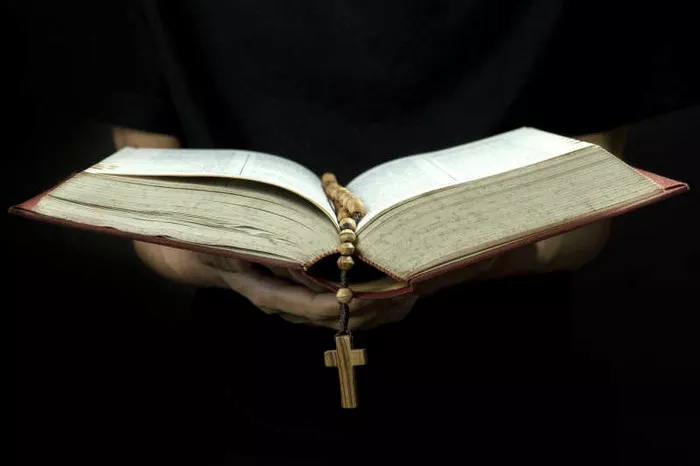The concept of priesthood holds a significant place in religious discourse, particularly in the Judeo-Christian tradition. Priests are regarded as intermediaries between the divine and the human, entrusted with various religious duties and responsibilities. In the Bible, the role of the priest emerges prominently, with discussions on their origins tracing back to ancient times. Among the numerous figures mentioned in biblical narratives, identifying the first priest presents a captivating inquiry. This essay delves into the biblical text to unravel the origins of priesthood, exploring the accounts and characters that potentially lay claim to being the first priest.
Understanding Priesthood in the Biblical Context
Before delving into the specific individuals often cited as the first priest in the Bible, it is crucial to grasp the essence of priesthood within the biblical context. The term “priest” originates from the Latin word “presbyter,” meaning elder, and it signifies an individual designated for sacred duties within a religious community. In the Old Testament, priests played multifaceted roles, including offering sacrifices, mediating between God and the people, teaching religious precepts, and administering various rituals.
The Genesis narrative provides foundational insights into the emergence of priesthood. The patriarchal figures such as Abraham, Isaac, and Jacob are portrayed as intermediaries between God and their descendants, engaging in sacrificial rituals and receiving divine promises. However, it is within the context of the Israelite Exodus from Egypt that the institution of priesthood begins to take a more structured form.
Aaron: The High Priest of Israel
Among the prominent contenders for the title of the first priest in the Bible is Aaron, the elder brother of Moses. Aaron occupies a central role in the Exodus narrative, serving as the spokesperson for Moses before Pharaoh and accompanying him during pivotal moments of liberation. However, it is his designation as the high priest of Israel that solidifies his position in the annals of biblical priesthood.
The Book of Exodus provides detailed accounts of Aaron’s consecration as the high priest by divine command. In Exodus 28, God instructs Moses to set apart Aaron and his sons for the priesthood, outlining the elaborate vestments they are to wear and the rituals of consecration they are to undergo. Aaron’s role as the high priest is underscored by his exclusive authority to enter the Most Holy Place within the Tabernacle, where he intercedes for the people and offers sacrifices on their behalf.
Moreover, Aaron’s descendants inherit the priesthood, establishing a hereditary line of succession that endures throughout Israelite history. The Book of Leviticus delineates the priestly duties and responsibilities, including the offering of sacrifices, purification rituals, and adjudication in matters of ritual purity. Aaron’s prominent position as the high priest signifies the formal establishment of priesthood within the Israelite community, making him a pivotal figure in the history of religious governance.
Melchizedek: The Enigmatic Priest-King
While Aaron’s role as the high priest of Israel is indisputable within the Israelite tradition, the figure of Melchizedek presents a compelling challenge to the conventional understanding of priesthood. Melchizedek appears in the Book of Genesis, where he is depicted as the king of Salem (ancient Jerusalem) and a priest of God Most High. The enigmatic nature of Melchizedek’s identity and his unique encounter with Abraham raise intriguing questions about his status as a priest.
In Genesis 14, following Abraham’s victorious battle against the coalition of kings, Melchizedek emerges to bless him and offer bread and wine. In response, Abraham presents a tithe of his spoils to Melchizedek, acknowledging his priestly authority and divine blessing. The author of the Epistle to the Hebrews in the New Testament interprets this encounter as symbolic of Christ’s priesthood, describing Melchizedek as “without father or mother, without genealogy, without beginning of days or end of life, resembling the Son of God, he remains a priest forever” (Hebrews 7:3, NIV).
The significance of Melchizedek lies in his transcendent priesthood, which predates the Levitical priesthood established through Aaron. Unlike the hereditary priesthood of Aaron’s descendants, Melchizedek appears as a solitary figure, unbound by genealogical lineage or temporal constraints. His priesthood is characterized by its universality and perpetuity, symbolizing a higher order of divine authority that transcends conventional religious structures.
Debate and Interpretation
The question of who holds the distinction of being the first priest in the Bible remains a subject of debate and interpretation within religious scholarship. While Aaron’s role as the high priest of Israel is firmly established within the Israelite tradition, the character of Melchizedek introduces a complexity that defies easy categorization. Some interpret Melchizedek as a prefiguration of Christ’s priesthood, representing a spiritual archetype that transcends historical and cultural boundaries.
Others view Aaron as the inaugural priest within the context of Israelite religious history, emphasizing the institutional framework established through the Mosaic covenant. The hereditary priesthood of Aaron’s descendants forms the basis of Israel’s religious governance, with successive generations fulfilling the sacred duties prescribed by the Torah. From this perspective, Aaron’s investiture as the high priest symbolizes the formalization of priesthood within the Israelite community, marking the beginning of a distinct religious institution.
Conclusion
In conclusion, the quest to identify the first priest in the Bible unveils a rich tapestry of biblical narratives and theological interpretations. Aaron, as the high priest of Israel, occupies a central role in the establishment of priesthood within the Israelite tradition, embodying the institutional framework of religious governance. However, the enigmatic figure of Melchizedek complicates this narrative, representing a transcendent priesthood that transcends temporal and cultural boundaries.
Ultimately, the significance of priesthood in the biblical context extends beyond historical chronology, encompassing theological themes of mediation, sacrifice, and divine authority. Whether viewed through the lens of Aaron’s hereditary priesthood or the archetype of Melchizedek’s universal priesthood, the concept of priesthood serves as a cornerstone of religious identity and practice within the Judeo-Christian tradition. As such, the exploration of the first priest in the Bible invites continued reflection and interpretation, enriching our understanding of sacred history and spiritual lineage.

